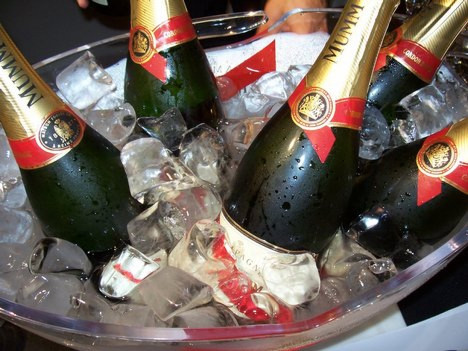Your Champagne May No Longer Come From Champagne Due To Climate Change

Researchers believe climate change could lead to a shift in geography for winemakers. For wines named after regions such as Champagne or Bordeaux, changing climate conditions could force winemakers to move to a new region, disrupting centuries of tradition.
It is illegal to call wine “champagne” unless it was made in the Champagne region of France, but the law may need to be changed in the future as climate change could force winemakers from the regions that have made them famous. Antonio Busalacchi, from the University of Maryland, is a climate scientist as well as a wine expert and believes climate change could dramatically alter wine regions.
“Climate change will produce winners and losers among wine growing regions, and for every region it will result in changes to the alcohol, acid, sugar, tannins, and color in wine,” Busalacchi said in a statement. His research focuses on the effect of climate change on 24 different wine regions, with projections depicting conditions in each of these regions at the middle of this century and at the end of this century.
Busalacchi states that some Champagne houses are beginning to look elsewhere for regions that are similar to the famed French location. Sussex and Kent may become the new home of Champagne, as the region will be warmer and the soil makeup most similar to the Champagne region in France.
As for other winemaking regions that may benefit from climate change, Busalacchi suggests areas further north or at higher altitudes, where climate change will lead to more-consistent weather and better growing seasons. “Rhine in Germany, U.S. states Oregon and Washington, the Mendoza Province of Argentina and New Zealand,” he cites as specific regions that will benefit the most.
On the flip side, the Bordeaux region will be particularly hard hit by warmer weather, Busalacchi asserts, predicting that region may soon produce low-acid wines that will disappoint fans due to shorter growing seasons. Bordeaux wines may go from having “classic aromas of cedar cigar box, blackcurrants and green pepper and more toward the full, rich, spicy peppery profile of a Chateauneuf-du-Pape from the Southern Rhone,” says Busalacchi.
Climate change could also lead to droughts in Africa and South America that would affect wine production. And extreme weather events caused by climate change, such as hailstorms, could destroy winemakers' key ingredients.
Winemakers need to be especially worried about climate change as normal changes in weather patterns can affect a wine’s vintage. Busalacchi notes that grapevines can produce fruit for up to 50 years, which means winemakers may have to think about moving well before climate change actually affects a region.
© Copyright IBTimes 2024. All rights reserved.






















